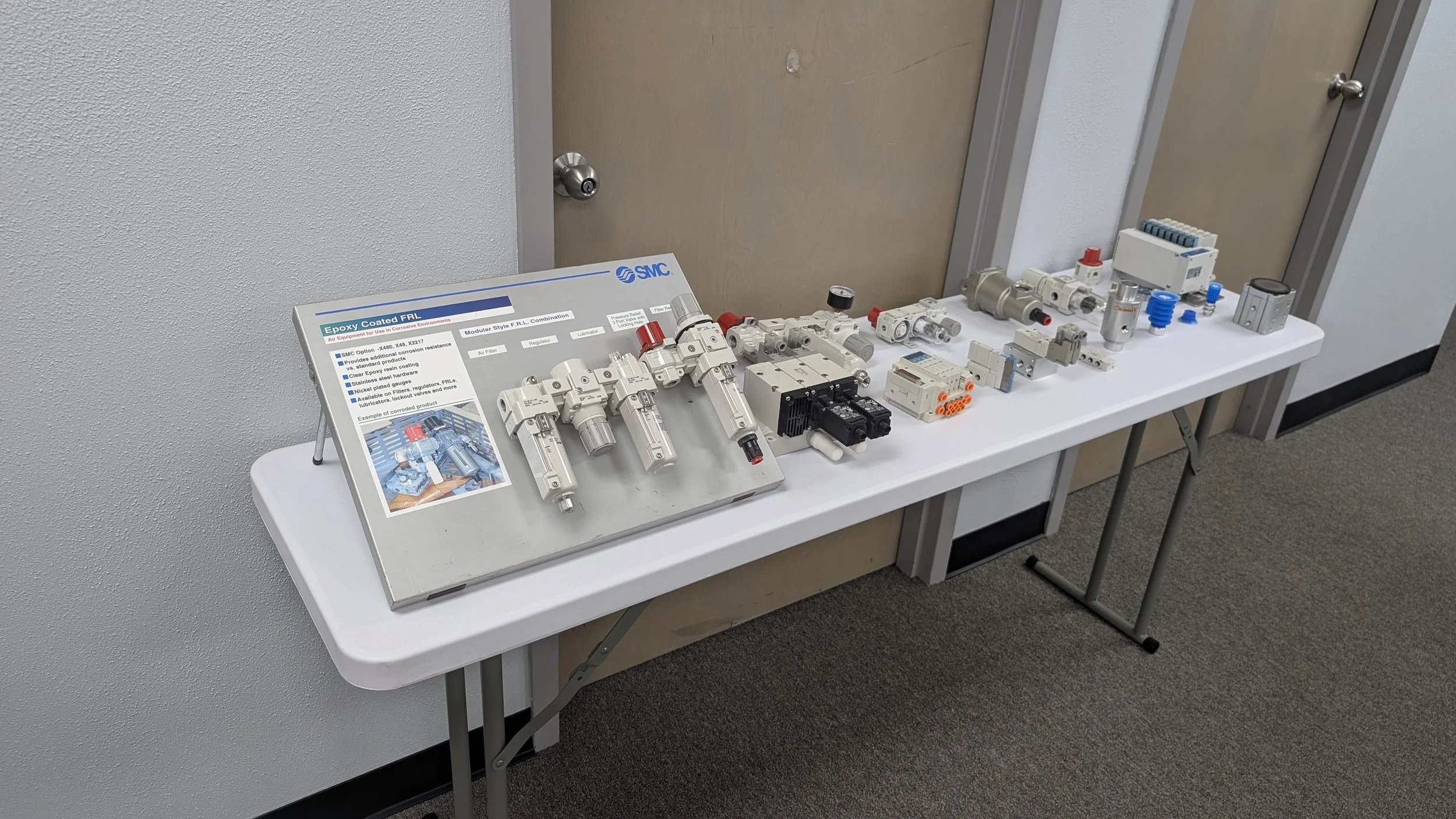Pneumatics Training Focuses on Robust Design and Energy Reduction
We recently hosted a highly successful pneumatics training session in partnership with Shingle & Gibb and SMC, aimed at improving system performance and reducing operating costs for our team. The session provided valuable insights into fundamental pneumatic principles and advanced efficiency techniques.
Key Takeaways for Optimized Pneumatic Systems
The training highlighted several crucial areas for immediate application and system improvement:
Foundation of Air Preparation: A central theme was the essential need for a thorough understanding of basic air preparation. Proper use and maintenance of components like filters and regulators are vital. Filters ensure clean air, protecting downstream components from damage and wear, while regulators maintain the correct operating pressure for maximum efficiency and component lifespan.
The Shift to Lower Pressure: A significant takeaway was the industry's push toward operating systems at lower pressures, specifically targeting levels around 60 psi. This move is a direct strategy for reducing energy consumption. Running a system at 60 psi instead of a standard 80 or 100 psi can yield substantial energy savings with minimal, if any, impact on application performance, provided the system is sized correctly.
Monitoring and Reducing Energy Consumption: The session provided several practical and easy ways to monitor and reduce pneumatic energy consumption. These methods focused on immediate-impact actions, such as:
Leak Detection: Implementing regular, simple checks for air leaks, which are often the largest source of pneumatic energy waste.
Right-Sizing Components: Ensuring valves and actuators are correctly sized for the load and cycle time, avoiding the use of unnecessarily large components that consume more air.
Smart Pressure Control: Using pressure regulators and sensors to match the supply pressure precisely to the minimum requirement of the application.
The collaborative effort by Shingle & Gibb and SMC delivered a practical, focused curriculum that gave attendees actionable strategies to enhance the reliability and efficiency of our pneumatic systems. This training will directly contribute to lowering our energy footprint and maintenance expenses.
Find your next training session at https://twcontrols.com/plc-lab-class-schedule


















